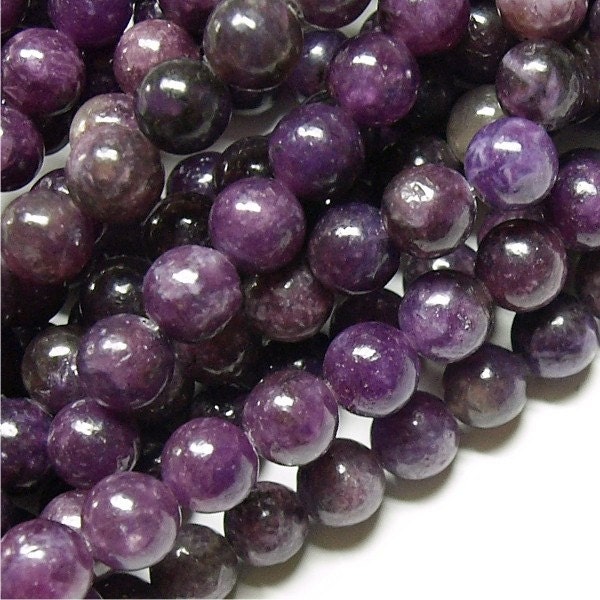Lapidolite
Lepidolite is a lilac-gray or rose-colored phyllosilicate mineral of the mica group that is a secondary source of lithium. The mineral is noteworthy as one of the major sources of the rare alkali metals rubidium and caesium.
The lithium content in lepidolite does vary greatly however and low lithium lepidolite is nearly useless as an ore of lithium. The typical violet to pink color of lepidolite is characteristic and is the only field test available to identify lepidolite from other micas. Pink muscovite or very pale lepidolite may confuse an identification.
When Lepidolite was first discovered in the 1700’s, it was given the name Lilalite, for its lavender color (from the Hindu word ‘lila’ meaning play, game). Scientists eventually renamed the stone lepidolite, from the Greek lepidos meaning “scale.” The reference is to the scaly appearance of lithium flakes in the mineral. Lepidolite is not technically a gemstone, but a very beautiful purplish referred to by healers as the Peace Stone. Lepidolite can be laid directly on painful parts of the body. It helps with nerve pain, sciatica, neuralgia and joint problems.
Lepidolite, like other micas, has a layered structure of lithium aluminum silicate sheets weakly bonded together by layers of potassium ions. These potassium ion layers produce the perfect cleavage. lepidolite crystals accompany such other lithium bearing minerals such as tourmaline, amblygonite and spodumene and can add greatly to the value of these specimens. A rock made of granular pink lepidolite and red to pink tourmaline is used as an ornamental stone for carving. Single large plates or “books” of lepidolite can have appealling violet color and make attractive mineral specimens.
Noteworthy deposits have been found in Brazil; Ural Mountains, Russia; San Diego County, California; Mexico; Tanco Pegmatite at Bernic Lake in Manitoba, Canada; Madagascar and Zimbabwe.
